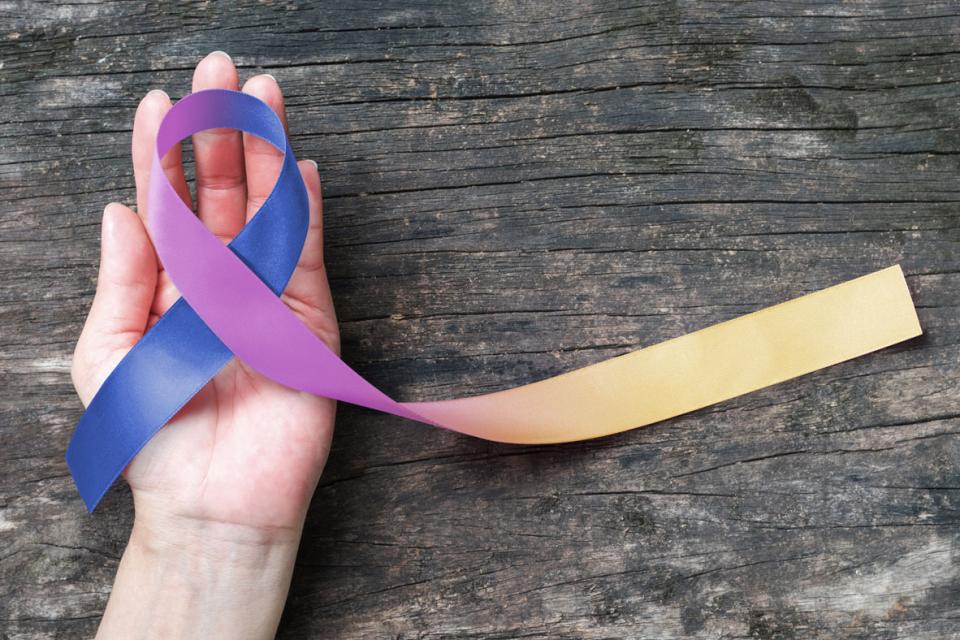Milk Products and Bladder Cancer
According to the Third Expert Report by the World Cancer Research Fund and the American Institute for Cancer Research, studies have suggested that there is a reduced risk of bladder cancer associated with milk product intake. However, no conclusions can be drawn at this time regarding a possible association due to limited evidence.

Highlights
- Studies have suggested an inverse association between milk products and bladder cancer.
- There is limited evidence on the relationship between milk products (milk, yogurt, cheese) and bladder cancer, such that no conclusion can be drawn at this time.
Basic Facts on Bladder Cancer
As with most cancers, there is no single cause of bladder cancer. The risk of developing bladder cancer increases with age and it usually occurs in people older than 65 years. There are a number of known risk factors for bladder cancer including the following, among others:1
- Smoking (the most common risk factor)
- Occupational exposure to chemicals
- Exposure to radiation
- Chronic bladder irritation
- Personal history of cancer of the urinary tract
- Bladder birth defects
The evidence
According to the Third Expert Report published in 2018 by the World Cancer Research Fund and the American Institute for Cancer Research, there is limited evidence on the association between milk products (milk, cheese, yogurt) and bladder cancer, such that no conclusion can be drawn.2 The previous report indicated suggestive evidence of a reduced risk with milk and the latest report judged that a conclusion could not be drawn on milk or dairy products.2
Potential mechanisms
Calcium and vitamin D
To date, few studies have investigated the role that calcium or vitamin D may play in bladder cancer.
The Third Expert Report by the World Cancer Research Fund and the American Institute for Cancer Research states that the evidence for calcium and serum 25-hydroxy vitamin D is too limited to draw any conclusions.2
While intracellular calcium favourably influences cell growth and apoptosis of epithelial cells, calcium can have both beneficial and harmful effects on carcinogenesis at the cellular level, depending on the cell type.3
Vitamin D is a thought to be protective against cancer in many organs due to its anti-proliferative effect. Higher intakes of vitamin D have been associated with reduced bladder cancer risk in the elderly.3
Lactic acid bacteria
Fermented or cultured milk products, such as yogurt, and some cheeses are a source of lactic acid bacteria. A few animal studies, as well as a randomized trial among humans, have shown that Lactobacillus supplementation may prevent bladder carcinogenesis.3,4
Conclusion
The evidence on the relationship between milk products (milk, yogurt, cheese) and a reduced risk of bladder cancer is limited and no conclusions can be drawn at present. More studies are needed for conclusive answers.
While calcium, vitamin D and lactic acid bacteria may have protective effects against bladder cancer, more mechanistic studies are needed to investigate their anti-cancer properties.
References
-
Canadian Cancer Society. 2018. Bladder cancer. www.cancer.ca. Accessed September 21, 2018.
-
World Cancer Research Fund/American Institute for Cancer Research. 2018. Diet, Nutrition, Physical Activity and Cancer: a Global Perspective. Continuous Update Project Expert Report. www.wcrf.org. Accessed September 21, 2018.
-
Lampe JW. Dairy products and cancer. J Am Coll Nutr 2011;30:464S-470S.
-
Feyisetan O et coll. Probiotics, dendritic cells and bladder cancer. BJU Int 2012;109:1594-1597.

